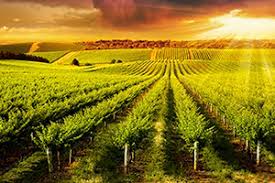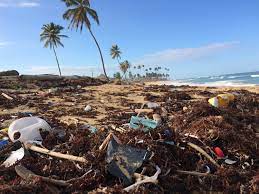Climate Change on Land Resources (Agriculture Production)
Climate change and climate variability present a challenge to ecologically, economically, and socially sustainable land resources management.
Drought, floods, and temperature fluctuations due to climate change can directly affect agricultural operations through damage to crops and livestock. Indirect effects of climate change include higher soil erosion rates, more invasive species, and changes in soil and vegetative relationships.
The consequences of global warming will not be spread evenly across the planet and the challenges of coping with changes will be regionally unique.
The Natural Resources Conservation Service (NRCS) is focusing global climate change efforts in several areas that includes:
Quantifying the effects of conservation practices on greenhouse gas emissions and carbon sequestration.
Refining incentives in conservation programs to address the effects of climate change on agriculture.
Developing and encouraging the use of conservation practices and systems that reduce GHG emissions.
Enhance opportunities to increase farm profitability on the emerging voluntary emissions trading markets.
Agricultural activities that mitigate the impact of Greenhouse Gas (GHG) emissions
Agricultural and forestry activities can contribute to the reduction in atmospheric buildup of GHGs in three important ways; sequestration, emissions reductions, and fossil fuel substitution.
Sequestration: Carbon dioxide (CO2) removed from the atmosphere can be stored in soils, biomass, and harvested products, and protected or preserved to avoid CO2 release back to the atmosphere. These become carbon stores or carbon sinks.
Read Also : Methods of Disposal of Waste Pesticide Containers
Emissions reductions: Agricultural CH4 and N2O emissions can be reduced through effective manure and feed management and efficient fertilizer application. CO2 emissions can be reduced by adopting more fuel efficient technologies and practices.

Fossil fuel substitution: Using biofuel produced in the agricultural sector instead of fossil fuels can help lower GHG concentrations.
By adopting these practices, producers can save money and time while enhancing and improving the environment around them, a common goal for many farmers and ranchers as well as their community partners.
Emerging issues in resource conservation in some conservational organizations or institution.
Canadian Institute for Environmental Law and Policy
Issues include;
Nanotechnology, Biotechnology and GMOs, Increased use of market-based incentives for conservation, such as payments for ecosystem services and biodiversity offsets.
United Nations Educational, Scientific and Cultural Organization
Issues under this organization are;
Potential and actual impacts of the global financial crisis on biodiversity conservation and sustainable use efforts, Cultural and social drivers of biodiversity change, Climate change and its continuing effects, in particular:
Opportunities offered and risks posed by Carbon offset schemes;
Linkages between biodiversity and health, Assessing the nature and scope of processes and activities in the open and deep ocean.
United Kingdom Global Biodiversity Sub Committee
Issues are:
Ocean acidification, Arctic Biodiversity, Impact of ground level ozone on biological diversity.
Iran, Islamic Republic Resource conservation issues are;
Effects of climate change on habitats, specifically the effects of drought on wetlands, Climate change effects on biodiversity, Endemic species, Effects of GMOs on genetic diversity of wild species, Effects of invasive alien species on genetic, species and ecosystem diversity of protected areas.
In conclusion, global warming and Climate change is one of the most critical global challenges of our time in resource conservation. Drought, floods, and temperature fluctuations due to climate change can directly affect conservation of resources and agricultural operations through damage to crops and livestock.
Read Also : Human Impact on the Natural Environment
There are other emerging issues in resource conservation that are developing and under research by countries, organization and institution to curb with resource conservation.
In term of land resources in agricultural production, climate change and climate variability present a challenge to ecologically, economically, and socially sustainable land resources management.
The three important ways which are sequestration, emissions reductions, and fossil fuel substitution, mitigate the impact of Greenhouse Gas (GHG) emissions that are current issues in resource conservation.



